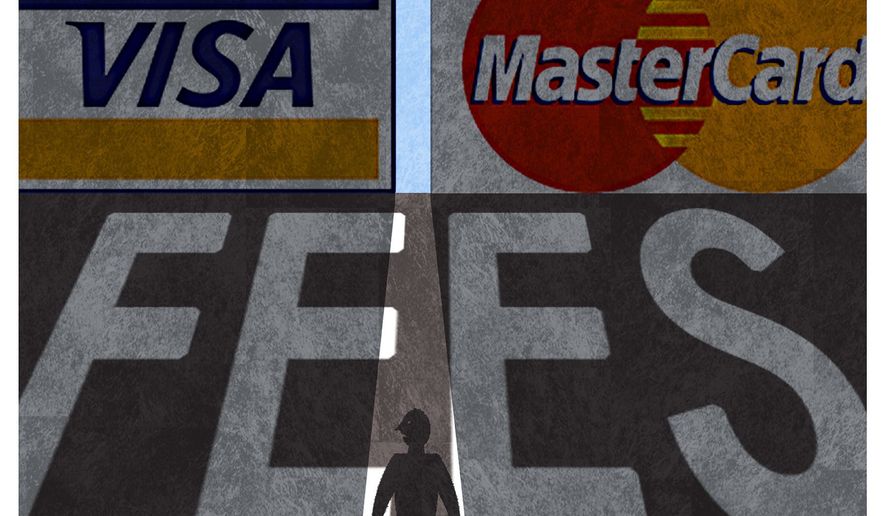OPINION:
When was the last time you used cash? You’re not alone. Cash was the medium of exchange in about 1 in 10 in-person purchases in 2021. The rest were a combination of credit cards, debit cards or digital wallets — such as Apple Pay. The shift to plastic is a long term trend that accelerated as online purchases became king during the pandemic.
The change has elevated convenience for consumers, but has come with a big financial headache for businesses. The Federal Reserve should follow through on a policy clarification proposal it’s been sitting on for a year to help alleviate the pain.
Every time a customer swipes, inserts, taps or types their information to make a payment online, the seller is charged a fee. And these fees add up. U.S. retailers forked over nearly $140 billion in 2021 to process card transactions. For low margin businesses — including restaurants, grocery stores or convenience stores — this transaction tax is often one of the biggest expenses behind labor costs.
It’s an arrangement that should raise eyebrows. Even as technological innovations have reduced the cost for banks to process debit and credit cards, fees continue to skyrocket — doubling over the past decade. The base cause is a lack of competition.
In most areas of our economic system, an abundance of choices combined with price transparency drive down the cost of goods and services. On the flipside, when an industry becomes consolidated — as in the case of credit and debit cards — consumers lose. Compare the difference in cost of a long-distance phone call made 40 years ago to now. What happened in between? The phone company monopoly ended — leaving Verizon, AT&T, T-Mobile and others to jockey for customers.
Today, Visa and Mastercard similarly dominate the proverbial highway that processes credit and debit cards. The heavyweights handle roughly 80% of the market — effectively forming a duopoly that controls the processing fees for a vast majority of U.S. banks. Retailers are left with few alternatives and forced to enter into a deal they can’t refuse.
Enter the Justice Department’s Antitrust Division and Federal Trade Commission. Last year, the agencies endorsed a proposal from the Federal Reserve to inject a dose of competition into the online payment arena. Building off a 2010 law that required debit card issuers (i.e. banks) to give retailers a choice of payment networks for in-store transactions, the Fed is now looking to apply that standard to online purchases.
This doesn’t just apply to ordering a new lamp on Amazon or iPad from Apple. It’s anytime a consumer pays for a product without a card being physically present — including food delivery or taking an Uber ride.
If the Fed proposal becomes reality, the consumer won’t notice a difference right away. But the seller will and the savings will roll downhill to customers.
Imagine you go to buy a new bookcase online. When you make the purchase, rather than being forced to rely on Visa or Mastercard (and their high fees) to make the transaction, the seller will have the option to choose another company linked to your card to process the transaction. Although not household names, networks like STAR or PULSE provide the same service as Visa or Mastercard.
The new arrangement will force debit card networks to compete with one another for a retailer’s business. That will, in turn, help lower processing fees.
(It’s a dose of competition that policymakers should also consider fostering more broadly within the credit card market.)
But since proposing the standard in 2021, the Fed seems to have fallen asleep at the wheel. The comment period on the regulation came to a close nearly a year ago and a final rule hasn’t been released. According to estimates from CMSPI, businesses are paying more than $200 million in extra fees every month the Fed doesn’t act.
With inflation setting yet another 40-year high, businesses and consumers are looking to anyone for even modest financial reprieve. The Federal Reserve needs to wake up.
• Richard Berman is president of Berman and Co. in Washington.




Please read our comment policy before commenting.